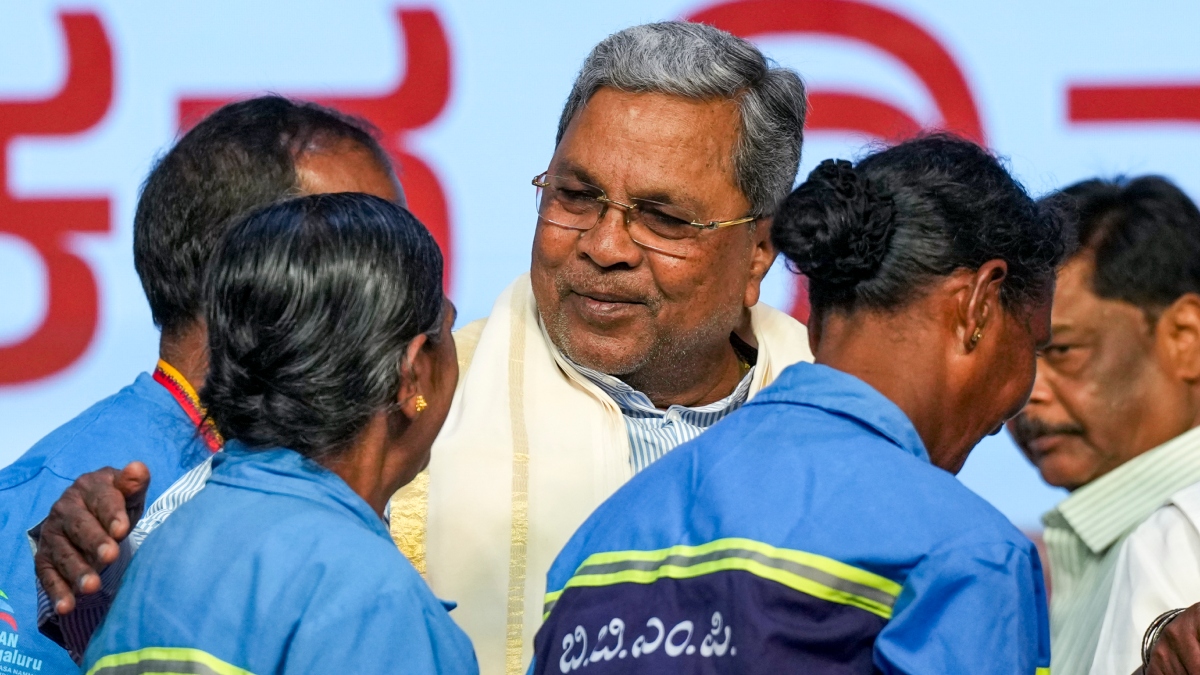Karnataka launches door-to-door survey, data to help fix internal quota for Scheduled Castes
 Karnataka Chief Minister Siddaramaiah | PTI
Karnataka Chief Minister Siddaramaiah | PTI
The Karnataka government on Monday launched a comprehensive caste survey of the Scheduled Castes (SCs) in the state to gather empirical data on 101 sub-castes to work out the internal reservation matrix for SCs.
After Telangana and Andhra Pradesh, Karnataka is now planning to introduce the internal quota following the Supreme Court's landmark judgement (dated August 1, 2024) that allows states to create sub-classifications within the SC reservation.
Chief Minister Siddaramaiah, addressing a press conference in Bengaluru, said his government was committed to ensuring equitable distribution of reservation benefits and upholding social justice by implementing the internal quota.
The 42-point survey covering socio, economic, political, educational and employment status of the 101 castes will be carried out in three phases – door-to-door survey (May 7 to 17), special designated camps (May 19-21) and online self-declaration (May 19-23). Over 65,000 teachers have been deployed as enumerators, with one supervisor assigned to each group of 10-12 surveyors. Citizens are urged to provide correct sub-caste details.
"The 2011 census lacked detailed sub-caste information, making this exercise necessary for fair policy decisions. The one-member commission headed by retired High Court Judge HN Nagamohan Das will oversee the process. Our government is committed to implementing internal reservation within SC communities based on accurate data," said Siddaramaiah.
The survey costing Rs 100 crore will be carried out and a report will be submitted within 60 days to help the government finalise the final reservation matrix. A mobile app has been developed for the process and a dedicated helpline (94813/59000) has been set up for public queries.
The internal quota was a long pending demand of the marginalised SC (Left) community to provide the sub-classification to prevent dominant SC castes from cornering all the benefits.
In October last year, the Karnataka cabinet decided to set up a one-man commission to make recommendations and accordingly, the Justice H.N. Nagmohan Das committee submitted its interim report on March 27, this year. After the committee stressed the need for verified population data before implementing internal reservation.
It may be recalled that the Justice AJ Sadashiva Commission, in 2012, had suggested a sub-quota by redistributing the 15 per cent SC reservation and the previous BJP government (in 2023) not only enhanced the SC and ST reservation by two percent each, but came up with a reservation matrix within the SC community.
A subcommittee headed by then law minister J.C. Madhuswamy divided the SC community into four groups. Among the 'untouchables' in the SC (Left) - Madiga, Adi Dravida and Bambi, would get 6 % reservation and SC (Right) which includes Adi Karnataka Holeya and Chalavadi, 5.5 per cent. Among the 'touchables', the Banjara, Bhovi, Koracha and Korama would get 4.5 per cent and Are Alemari and Alemari (nomads) one percent.
The Congress government has decided to conduct an independent survey to build the empirical data that can give the exact population of every sub caste. Also, traditionally the Congress enjoyed the support of SC right communities, and the saffron party favoured by SC left communities and internal quota is being opposed by the Sc right leaders within the Congress fearing a backlash from their respective communities. The BJP has accused the Siddaramaiah government of dragging its feet over the issue and questioned Siddaramaiah’s commitment to social justice and the “delay tactics” of the ruling Congress.
Social welfare minister Dr HC Mahadevappa, said, "This is a historical survey of Scheduled Castes, we have 101 sub-castes under SC. No Census has captured such data (of every sub caste). We cannot declare or determine the size of each caste. We have evolved a foolproof system and are collecting data at each panchayat level by setting up booths and involving the deputy commissioners. This will give us better clarity to fix the reservation as it is a transparent process."
India